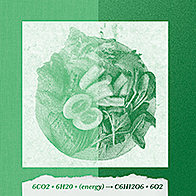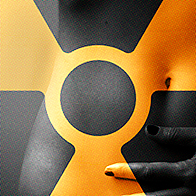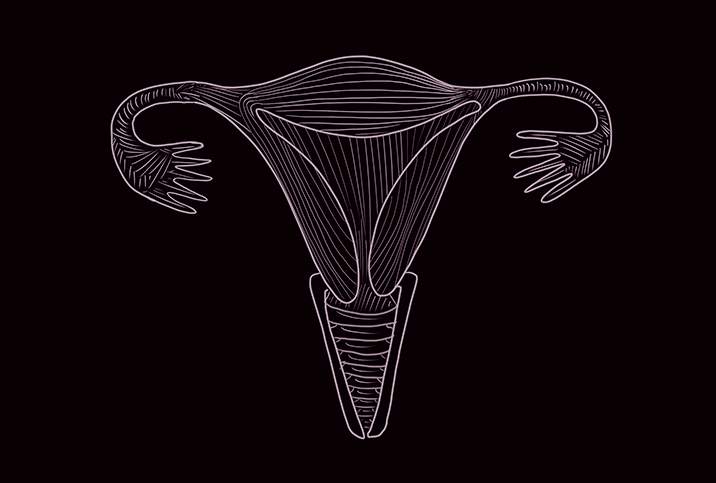Is Your Slow Cooker Impacting Your Reproductive Health?

Slow cookers have been around since the 1950s, and they've been beloved for generations for their convenience. Who doesn't enjoy coming home to a warm meal that's ready to serve? But that convenience might just come with a negative impact on your health.
You may have noticed a warning label on your slow cooker that sounds pretty ominous. Many of these convenient gadgets come with a Prop 65 warning that businesses are required to provide to California residents about significant exposures to chemicals that cause cancer, birth defects or other reproductive harm.
For slow cookers, the chemical in question is lead, which is associated with a variety of health problems for both children and adults. We talked to the experts to find out just how concerned we need to be.
Is lead leaching into your food?
In 2004, Bill Gephardt from Salt Lake City's KUTV investigated how much lead leached into food from different kitchen appliances. Gephardt took various slow cookers from different brands to the DataChem Lab in Salt Lake City to be tested. His investigation suggested 20 percent of slow cookers were leaching lead into food.
According to his findings, when ceramic cookware is heated to just 80 degrees Fahrenheit, it releases 10 times the amount of lead as it does at room temperature—and slow cookers can be heated up to 300 degrees Fahrenheit.
Most slow cookers are made of ceramic because it allows for even heat distribution and makes it easier for food to maintain its heated state. Lead is used in the glaze found on ceramic products—it helps give ceramics their shine. Some slow cooker brands today use non-lead glazes during production, but there are still many brands that use lead.
Lead is an element found in nature that has known harmful effects on humans. The World Health Organization (WHO) states there is "no known safe blood lead concentration" because the body stores lead in bones and teeth, where it continually accumulates.
'If a warning is placed on a product label, the business issuing the warning is aware that it is, or may be, exposing individuals to one or more listed chemicals.'
However, the U.S. Food and Drug Administration (FDA) allows a certain level of lead in cookware. For large vessels, including slow cookers, the accepted leach level is 1 part per million (ppm) per large holloware piece, and most slow cooker manufacturers state their levels are below this legal limit. Additionally, the U.S. Department of Agriculture (USDA) Food Safety and Inspection Service states that slow cookers are safe. But lead poisoning is an accumulative process, and some researchers question the veracity of these statements.
The Prop 65 warning on some slow cookers is a mandatory label in accordance with the California Safe Drinking Water and Toxic Enforcement Act of 1986. The warning is specific to the amount of chemicals that are deemed safe and acceptable. Labels are required on products containing more than 0.1 ppm of lead. This is 10 times lower than the amount of lead the FDA deems acceptable.
"If a warning is placed on a product label, the business issuing the warning is aware that it is, or may be, exposing individuals to one or more listed chemicals," explained Amy Gilson, Ph.D., deputy director of external and legislative affairs for the Office of Environmental Health Hazard Assessment in Sacramento, California. "By law, a warning must be given for listed chemicals unless the exposure is low enough to pose no significant risk of cancer or is significantly below levels observed to cause birth defects or other reproductive harm."
Seeing a Prop 65 warning on a slow cooker means it leaches more than 0.1 ppm of lead, allowing you to make an informed decision before purchasing.
Lead's effects on reproductive health
Lead is particularly harmful to children, even at low levels. Low-level lead exposure can permanently damage the brain and nervous system, and lead to reduced IQ and behavioral changes, such as reduced attention span.
Lead is also harmful to adults, and the WHO cites kidney damage and risk of high blood pressure as long-term effects of lead exposure.
Numerous studies have documented the adverse effects of lead exposure on reproductive health.
"[For women], the toxic levels of lead can cause effects manifested mainly as increased prevalence of menstrual disturbance, spontaneous abortion, miscarriages, prematurity, low birth weight and problems with development during childhood," said Ab Latif Wani, Ph.D., a postdoctoral research associate with specialization in genetics and toxicology, public and environmental health in Srinagar, Jammu and Kashmir, India.
"Impairment of male reproductive function was observed as decreased volume of ejaculation, reduced total sperm count and live spermatozoa, retarded sperm activity, and lowered density of semen fluid in exposed male workers with blood lead," Wani continued.
Once someone is exposed to lead, some of the health impacts may be reversible, but others are not, especially effects on reproductive health.
"The harm caused due to lead toxicity can be reversible in certain cases, but the results can be varied among individuals," Wani explained. "However, there are also reports that the lead toxic effects on the human reproductive system can be significantly reduced but not reversed to its full efficiency."
The Centers for Disease Control and Prevention (CDC) states the upper acceptable limit of lead levels is 10 micrograms per deciliter (μg/dL) of blood among the general population, and 5 μg/dL of blood among children and pregnant women.
"However, time and again, it has been shown through many studies that lead shows the toxic effects even below 10 μg/dL of blood," Wani warned. "Practically, there is no threshold level of lead which can be called a safe limit."
Adverse effects on health are found even at low levels of lead exposure, so it's possible the amount leaching into food from slow cookers might have an impact on reproductive health. However, more research is needed on the topic.
Precautions to take to limit lead exposure and effects
According to Wani, proper nutrition may alleviate some of the effects of lead exposure.
"Continuous long exposure of toxic metals when associated with low levels of essential nutrient metals leads to more serious consequences and elevated toxic manifestations," he explained. "Additionally, our diets should be rich in antioxidants, [such as] beta carotenes, vitamin A, vitamin C, zinc and copper, that may significantly help to neutralize the lead-related dysfunctions. Several studies have provided direct evidence about the role of zinc in alleviating lead toxicity."
Zinc mitigates most of the toxic effects of lead, according to a 2021 literature review, in which Wani served as the lead author, published in the Journal of Trace Elements in Medicine and Biology. However, this doesn't mean it's healthy to be exposed to lead as long as you take zinc to mitigate the effects, and more research is needed to understand the implications.
If you want to use a slow cooker but avoid concern about lead leaching into your food, look for products with a stainless steel insert instead of a ceramic one. When in doubt, read the manufacturer's insert, check their website or call them directly for more information. You can also purchase a lead test kit to check your cookware yourself.




















